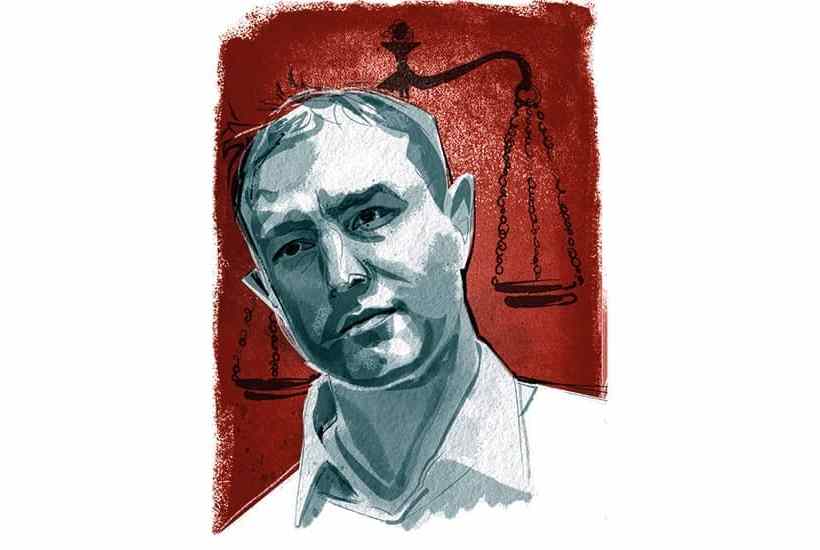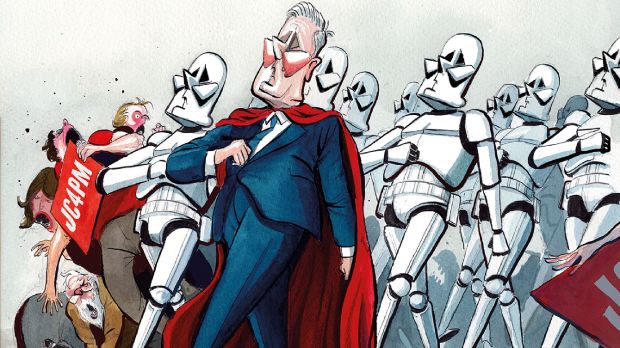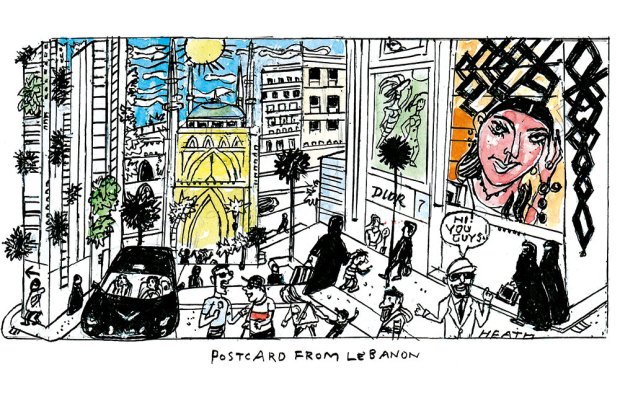In August 2015, Tom Hayes, then aged 34, was sentenced to 14 years’ imprisonment after being found guilty on eight charges of conspiracy to commit fraud when working as a yen derivatives trader in Tokyo. Hayes was alleged by the Serious Fraud Office to be the grand ‘ringmaster’ of a group of traders who sought to enrich their banks and themselves by rigging Libor, the rate charged for interbank loans. His sentence was reduced to 11 years on appeal but it is still one of the longest–ever jail sentences handed out by a British court for a white-collar crime. A subsequent court hearing ordered the seizure of assets worth more than £800,000, while legal fees consumed the remains of his personal wealth including the proceeds from the sale of his family home.
Hayes, who worked for UBS and later for Citibank, was released in February last year after five and a half years in jail, having spent part of that period in high-security prisons, on several occasions sharing cells with convicted murderers. While in Lowdham Grange prison he was taken hostage by a fellow inmate seeking to obtain better medical attention. Hayes himself suffered serious mental and physical health problems and contemplated suicide.
In 2013, at a hearing of the Banking Standards Commission, the former chancellor Nigel Lawson described Hayes as ‘a crook of the first order’. But there is a growing conviction among those who have studied the evidence in depth that Hayes was engaged in normal commercial activity, that no rules were broken and no crime was committed.
To understand how such an egregious miscarriage of justice could have occurred, it is necessary to recall the public mood in the aftermath of the 2008 financial crash. It was one of outrage. As economies slowed, banks failed or teetered on the brink and unemployment rose, the desire to identify those responsible became intense. Moral panic set in at bank boardrooms. Major banking companies and central banks such as the Bank of England reacted to the crisis by seeking to keep Libor artificially low in order to avoid a still greater crisis of confidence, while denying that any such thing was going on. This practice, known as ‘lowballing’, is now regarded as a criminal offence. Changes have been made to a system that was loosely defined and potentially open to abuse.
When what had been happening seeped into the public consciousness, America’s Commodity Trading Commission and the UK’s Serious Fraud Office launched investigations into what they described as ‘massive interest-rate manipulation’, promising to bring to justice those responsible, no matter how highly placed. Banks in Britain, the US and Europe were forced to pay billions in fines — but in fact no bank director, board member or senior officer was ever charged or prosecuted.
Instead, criminal charges were brought against Hayes and 37 other traders who were dragged under the wheels of a careering bandwagon of opinion propelled by anti-banker sentiment and the desperate desire of the authorities to deflect blame.
For Hayes, his emails made him an easy target, because they seemed to sum up exactly the sort of cavalier corruption that people worried about.
Hayes asked another bank to skew Libor ‘too low for the next few days’, promising to ‘return the favour as and when you need it’, reported the Wall Street Journal. ‘Anytime I can return the favour let me know as the guys here are pretty accommodating to me,’ Hayes wrote. The unidentified other trader replied: ‘I will try my best.’
‘If you keep 6s unchanged today, yeah, I will do one humongous deal with you,’ Hayes said on 18 September 2008, on a call with one broker, referring to the six-month yen rate. ‘Like a 50k buck deal.’
Hayes and ten other tough-talking traders were convicted, 15 were acquitted and several remain on the run. But those who have followed their prosecutions and trials are ever more sure that none of the defendants was guilty, because the rule which they were accused of breaking simply did not exist. The French and German authorities came to this conclusion when refusing to extradite traders to face trial in Britain or the US.
In 2016 the Serious Fraud Office obtained a European Arrest Warrant for Andreas Hauschild, a former Deutsche Bank trader resident in Germany. He had refused a request to attend Westminster Magistrates’ Court to face charges of conspiracy to defraud over allegations that he had manipulated the Euribor lending rate. When he was arrested in Germany, the courts refused to extradite him because Euribor rigging was not an offence at the time it was alleged to have taken place. German prosecutors dropped their investigation for the same reason.
And this month, a US appeals court also came to that conclusion, promptly overturning the conviction of two former Deutsche Bank traders, one of them a UK citizen, after finding there was no evidence to show that they had done anything wrong. One of the men, Matt Connelly, who had waged an eight-year battle to clear his name, commented on his acquittal: ‘The only Libor “rigging” that was really bad was the lowballing. That was ordered from the top — from central banks and governments. And neither the Department of Justice nor the Serious Fraud Office has ever brought that to trial.’
The US ruling directly contradicts a British appeal court ruling that was used to prosecute 24 traders, nine of whom were handed jail sentences. Britain remains the only legal jurisdiction in the world in which the conduct of the traders, under the prevailing rules, is still regarded as criminal.
As miscarriages of justice go, the conviction of the traders for fraud comes close to that of the sub-postmasters scandal (732 of whom were wrongly prosecuted for theft or fraud). The crucial difference is that nothing in this case has been done to reverse the injustice.
The businessman Lord James of Blackheath, who has led the attempt to press the Criminal Cases Review Commission to send the cases back to the Court of Appeal, has suggested that the scandal is ‘comparable only to the French Dreyfus case as a legislative disgrace of national consequence’. His parliamentary colleague, Lord Vinson of Roddam Dene, has described the trial of Tom Hayes, who was the first of the traders to be prosecuted for rate rigging, as ‘truly disgraceful and disreputable’.
Imprisonment destroyed Hayes’s marriage as well as his career, although his wife, Sarah Tighe, a corporate lawyer, has continued to campaign against his conviction. Hayes, who has a nine-year-old son, remains on licence, cannot travel abroad, has a record as a convicted fraudster, and has lost almost everything he owned along with his reputation. Although deeply scarred by his experience, he says that his conversion to Christianity while in prison ultimately helped him to overcome the profound anger and bitterness he has felt.
Describing his experience in prison, he told me: ‘I had cellmates who assassinated people with machine guns. I was with the Hatton Garden guys. I knew one of the terrorists who had been involved in a plot to bring down an airliner with liquids.’
During the trial, much was made of Hayes’s admission during pre-trial hearings that he had behaved dishonestly. Since that time he has insisted that his words were designed to avoid a threatened extradition to the US and a 40-year mandatory jail sentence. Once that threat receded, he consistently protested his innocence, even though a guilty plea would most certainly have resulted in a shorter sentence.
When passing sentence, Judge Jeremy Cooke declared that he wanted to ‘send a message’. A reading of the trial transcript, combined with evidence that has emerged since, suggests neither he nor the jury really seem to have fully understood the evidence before them. Given that the prosecution’s arguments rested heavily on the flawed evidence of a supposedly expert witness, Saul Haydon Rowe, this is not surprising. It has since become apparent that Haydon Rowe — whose company charged the public purse more than £400,000 for its services — is not an expert on Libor and had to augment his inadequate understanding by consulting others during the course of the trial in order to give the impression that he knew what was talking about. Still more remarkably, it later emerged that the SFO was aware of his inadequacies in this respect a year before Hayes’s trial, but still chose to use him. The SFO says it has lost the papers relating to the matter.
To work out the Libor rate (the London Interbank Offered Rate, to give it its full name), 16 banks are sent a daily request to state at what interest rate they could borrow money at 11 a.m. The outliers are excluded but an average is worked out on the basis of the other submitted answers. The evidence against Hayes and other traders were emails asking for those rates to be submitted ‘high’ or ‘low’.
Another key witness for the prosecution, John Ewan, the director of Libor at the British Banking Authority at the time, alleged that a bank making a Libor submission was not allowed to take its own commercial interests into account. But in a subsequent trial at which traders were accused of rigging the rate, his evidence contradicted this, whereupon the accused were promptly acquitted.
It is also recognised that in practice there is not a single rate, but a permissible range of rates, which could be declared as the submission to the BBA — as Thomas Walford, an independent legal expert with extensive knowledge of banking procedures, has since pointed out in a submission to the CCRC.
A four-week examination of Hayes’s conduct by the Financial Conduct Authority involving 20 lawyers and accountants showed that there was no evidence whatsoever of dishonesty. Hayes’s defence team hoped this would be sufficient to ensure an acquittal. The evidence was submitted to the SFO with a specific request that it should be made available to the court, but Judge Cooke ruled it inadmissible. Despite Hayes’s conviction, the FCA has never withdrawn his licence to trade.
His supporters also point to the fact that other evidence could have been produced that would prove his innocence — literally millions of emails whose contents it was claimed would have breached Swiss bank secrecy laws if disclosed.
‘Everyone knew what was going on,’ Hayes told me. ‘The UBS knew, Citibank knew, the Bank of England knew. There was no deceit, nothing done in secret.’
Almost by definition, conspiracy to commit fraud cannot be a solitary activity but, extraordinarily, all Hayes’s six co-defendants were acquitted. Hayes, the only witness in his own defence, was precluded from calling them to give evidence in his case.
Much of what we know about this appalling miscarriage of justice is due to the rigorous and fearless research of Andy Verity, the BBC economics correspondent. Verity believes that many of his media colleagues have missed the real story, which is that the UK and US authorities didn’t realise at first — and later refused to acknowledge — what the US courts would later confirm: that this was not criminal behaviour but only ordinary everyday commercial practice within what were then the rules (unlike the much more serious conduct that they themselves condoned or instructed). His claims will be aired in a BBC podcast, The Lowball Tapes, broadcast next week, to be followed by a book entitled Rigged.
Verity’s revelations, which are said to include exclusive material about the role of the Bank of England in the scandal, will be extremely uncomfortable for those who occupied senior positions at the Bank, the Treasury and the Senior Fraud Office at a time when innocent men were jailed and lives irreparably damaged.
Got something to add? Join the discussion and comment below.
Get 10 issues for just $10
Subscribe to The Spectator Australia today for the next 10 magazine issues, plus full online access, for just $10.
You might disagree with half of it, but you’ll enjoy reading all of it. Try your first month for free, then just $2 a week for the remainder of your first year.














Comments
Don't miss out
Join the conversation with other Spectator Australia readers. Subscribe to leave a comment.
SUBSCRIBEAlready a subscriber? Log in